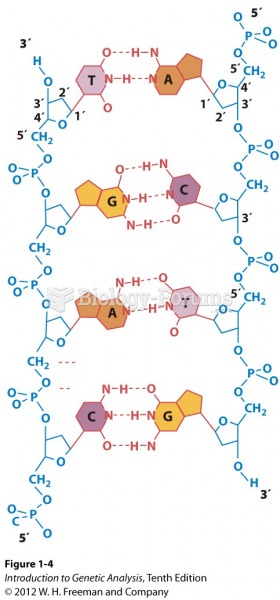|
|
|
Malaria mortality rates are falling. Increased malaria prevention and control measures have greatly improved these rates. Since 2000, malaria mortality rates have fallen globally by 60% among all age groups, and by 65% among children under age 5.
Asthma cases in Americans are about 75% higher today than they were in 1980.
The first oral chemotherapy drug for colon cancer was approved by FDA in 2001.
Though methadone is often used to treat dependency on other opioids, the drug itself can be abused. Crushing or snorting methadone can achieve the opiate "rush" desired by addicts. Improper use such as these can lead to a dangerous dependency on methadone. This drug now accounts for nearly one-third of opioid-related deaths.
Multiple experimental evidences have confirmed that at the molecular level, cancer is caused by lesions in cellular DNA.







